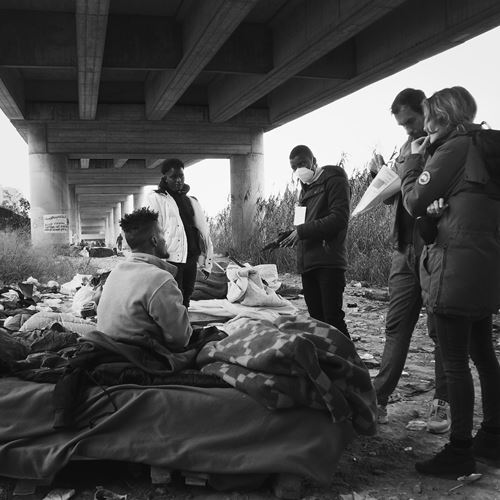
Giulia
Spagna
Country Director
Italy is geographically a key entry point to the European Union and a crossroad for numerous types of mixed migration flows. The country has witnessed the highest relative growth of its migrant population over the last 20 years.

Source: | UNHCR
EDPs: Refugees under UNHCR’s mandate
IDPs: Internally displaced persons
Asylum seekers: People whose claims for refugee status have not yet been determined
Stateless: People not considered as nationals by any State
HST: People living in Host Communities
OIP: Others in need of International Protection
OOC: Others of Concern
DRC forecasts are based on a machine learning tool that has been developed to predict forced displacement (IDPs, refugees and asylum seekers) at the national level 1-3 years into the future.
According to the latest updates on mixed migration flows in Italy, a total of 744,000 people are in need of assistance. Among the people in need are 506,000 irregular migrants and 303,000 asylum seekers, refugees and people with other permits of stay. Since the onset of the war in Ukraine in February 2022, an additional 173,920 Ukrainian refugees have arrived in Italy, and the number keeps gradually increasing.
In Italy, more than 60% of regular migrants and/or people in reception centers (asylum seekers, refugees and people with permits of stay) live in the North, due to better social and economic opportunities, as well as the closeness of border crossings to France, Switzerland and Austria. Val Susa in the Piedmont region and Ventimiglia in the Liguria region are now among the most strategic border crossings for migrants seeking to enter the rest of the European Union.
Due to policy changes and cuts to assistance to mixed migration flows, local civil society and State authorities in Italy are facing increasing difficulty in providing necessary services to displaced people.
This situation has been further aggravated by the recent displacements of Ukrainians since war broke out on 24 February 2022.
DRC in Italy works to provide services that range from legal counselling to protection monitoring and inclusion of third-country nationals in Italy. The aim is to ensure their full access and understanding of rights and duties in Italy and Europe.
The main areas of intervention include social housing and socio-economic integration of third-country nationals, social cohesion, health and protection of vulnerable categories, mainly irregular migrants, asylum seekers and refugees.
DRC Italy’s programming strategy is based on structuring its presence at the regional and national level by creating a network of partnerships with relevant local civil society organisations, tailoring and sensitising activities to the Italian context.
A number of flagship projects have been implemented by DRC in Italy. More recent projects evolve around socio-legal assistance, health and provision of support to basic needs for migrants at the border areas. DRC in Italy is also participating in the Protecting Rights at Borders (PRAB) project aimed at monitoring illegal pushbacks and violations at the internal EU borders.
DRC Italy also implements international housing projects for migrants, refugees and asylum seekers, as well as local interventions for the support of homeless people – amongst which many are irregular migrants and refugees, in the city of Turin.
Ukraine: DRC Italy has established a helpdesk to promptly respond to the needs of people arriving from Ukraine along two intertwined streams of activities related to protection-information management and legal aid.
The hotline is active 5 days per week (Monday-Friday) from 9 am to 7 pm, with 5 Ukrainian, Russian, Italian, and English-speaking staff responding to the queries of refugees from Ukraine (Ukrainian and third-country nationals) entering the Piedmont Region, as well as of the host community in need of information.
A DRC Legal Aid Officer works with the hotline team to provide in-depth legal analysis and legal support for complex cases. The Legal Aid Officer also takes care of drafting legal documents, facilitating contacts with relevant institutions, and public social services, as well as assessing protection needs and community assets to identify risks and vulnerabilities.
DRC Italy hotline for Ukrainians and host communities: +39 011 432 67 00

Giulia
Spagna
Country Director